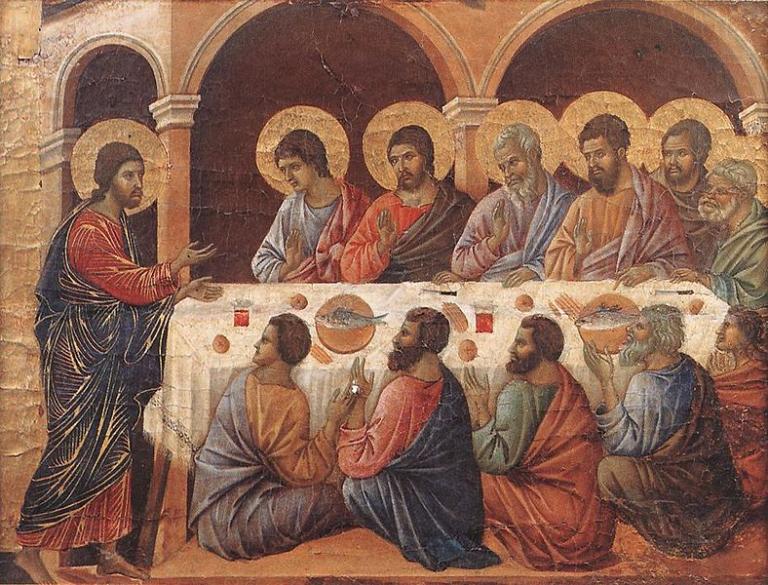
(Wikimedia Commons public domain image)
Compare Matthew 16:19; 18:18; Mark 16:14
In the Lukan account, Jesus makes a deliberate effort to impress upon the disciples that his resurrection was truly physical. He tells them to touch him, and he eats before them — and not, presumably, because he’s suddenly famished, as if being resurrected creates a big appetite. Of course, this simply confirms what the fact that the tomb was empty has already indicated: His body has been resurrected, not merely his spirit.
John’s account adds the experience of Thomas, who is also given the opportunity of literally touching the body of the resurrected Lord.
But not everybody will have this privilege, and Jesus speaks to them, too: To believe without seeing is, in its way, more blessed than insisting (as Thomas had and as Jesus had granted) on physical proof.

(Wikimedia Commons public domain image)
Most of us will not see Christ in this life. But we have reliable accounts from reliable witnesses who have — both ancient and modern.
If we fail to credit those witnesses, we will be held accountable for our failure.

Compare Mark 16:14-18; John 14:23
1.
It’s difficult to imagine that “some doubted” even in the presence of the resurrected Lord. But the fact of death is so universally well known and so widely understood as definitive, and wishful thinking so generally understood to be a dangerous spur to error, that some still wondered whether it was all too good to be true. So much, I suppose, for the complacent modern notion that ancient people were credulous while we chronologically superior mortals are guided by pure, dispassionate reason.
2.
I’ve encountered some critics of Mormonism who’ve claimed that Christ’s promise to be with his disciples “alway, even unto the end of the world,” rules out the possibility of a universal apostasy. But the phrase translated by the King James as “even unto the end of the world” is ἕως τῆς συντελείας τοῦ αἰῶνος, and that last word, αἰῶν (compare English eon or aeon) could just as easily be rendered as “age” or “period” or, even, I suppose, “dispensation.” So Jesus could have been saying that he would be with them “to the close of the age” or “until the completion of the age,” or “until the close of the dispensation.”
Posted from Jerusalem, Israel










